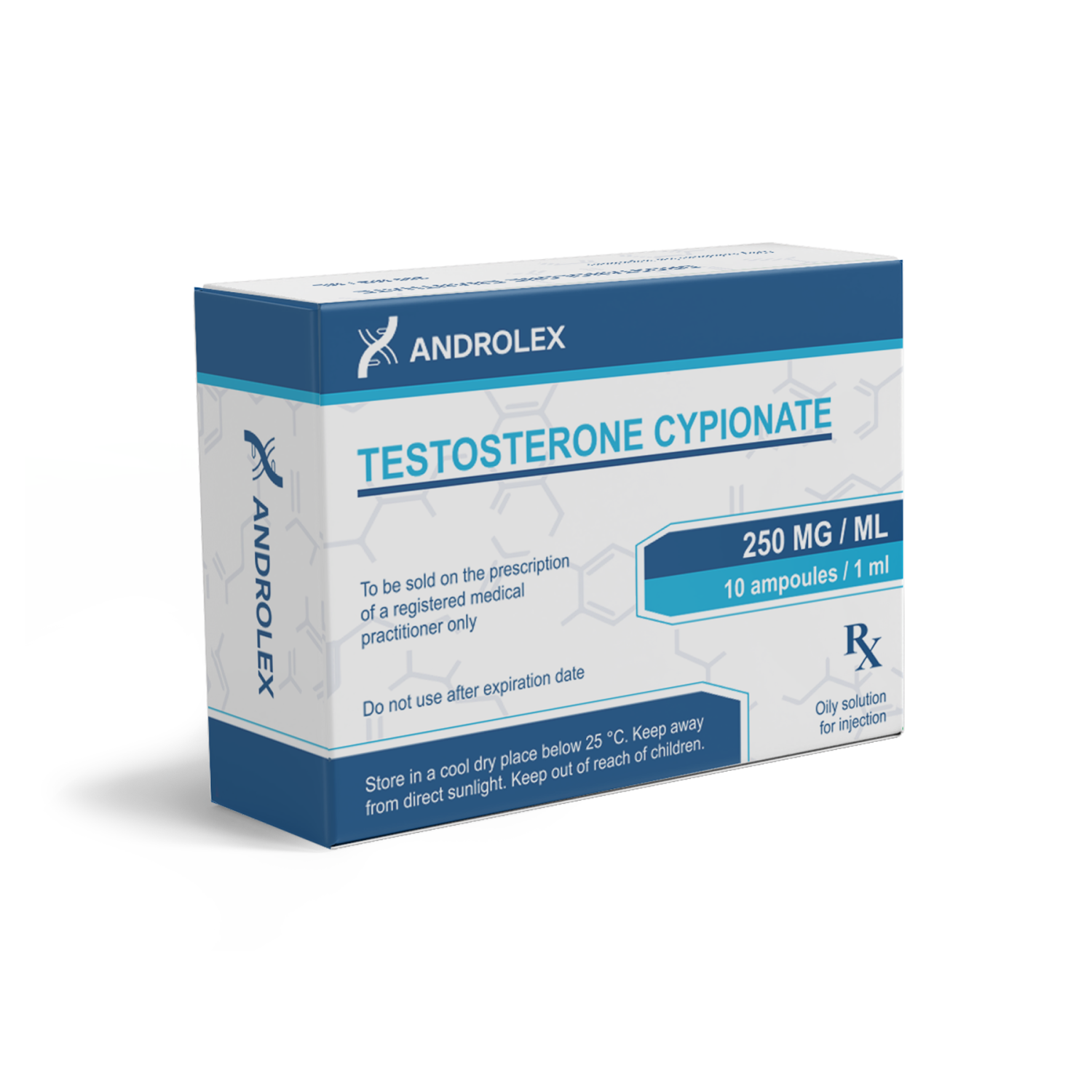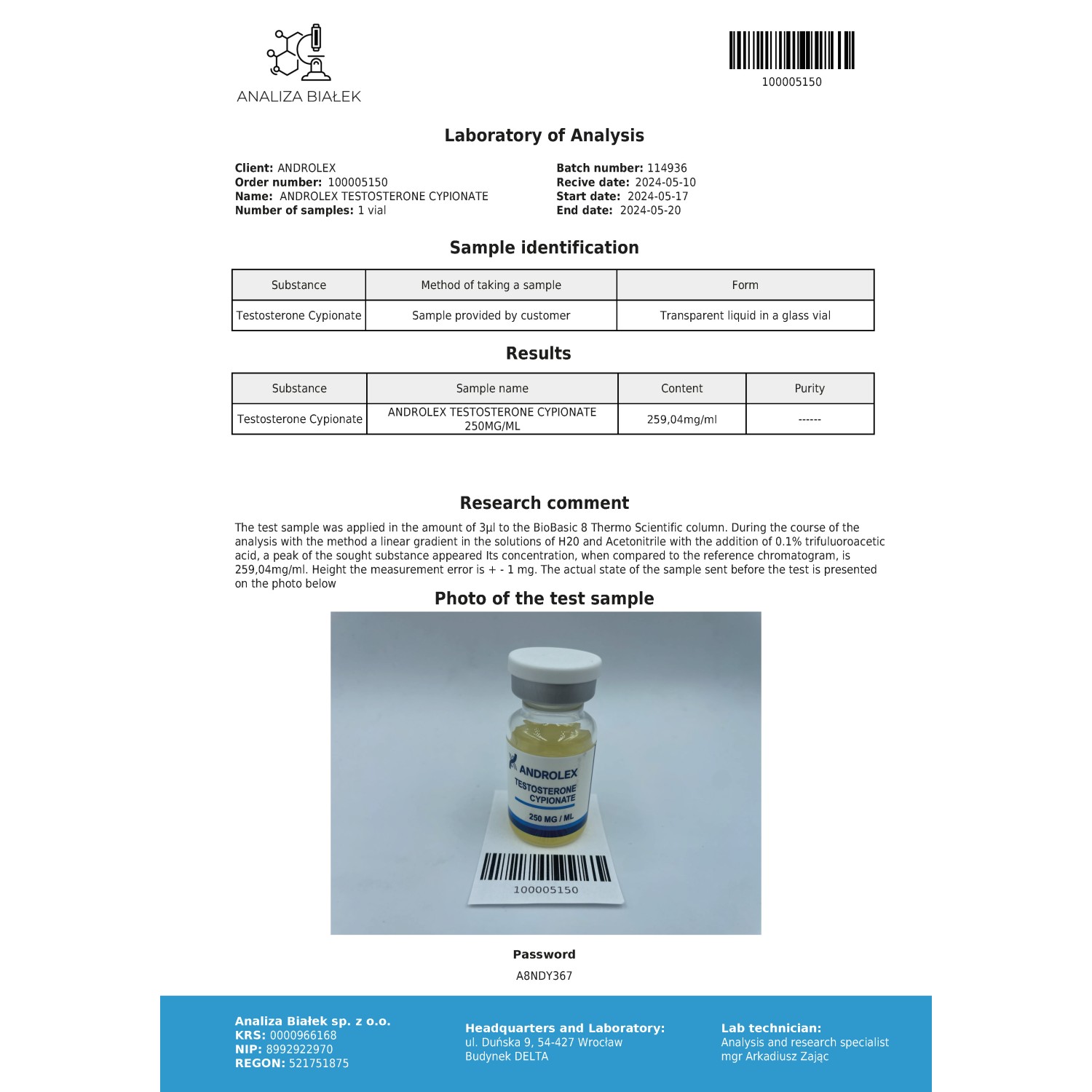



What is Testosterone cypionate (ampoules)
Testosterone cypionate in ampoules is an injectable oil-based form of testosterone, designed for slow and steady hormone release into the bloodstream.
It represents a long-acting androgenic–anabolic compound, chemically identical to endogenous testosterone, but modified with the cypionate ester to prolong its activity.
The ampoule format ensures accurate dosing, sterility, and stable concentration, making it suitable for controlled, long-term administration.
Once injected intramuscularly, the substance forms a depot, from which testosterone is gradually released over several days.
Main effects of Testosterone cypionate (ampoules)
💪 Stimulates muscle protein synthesis and lean tissue growth
⚡ Increases power output, stamina, and physical recovery
🩸 Enhances red blood cell formation and oxygen transport efficiency
🧠 Supports cognitive stability, motivation, and mood balance
🧬 Strengthens bone structure and mineral density
🔥 Promotes metabolic activity and fat reduction
How to take Testosterone cypionate (ampoules)
Administration
- Route: deep intramuscular injection (commonly in the gluteal or thigh muscle)
- The oil solution should be brought to room temperature before injection
- Each ampoule contains a single pre-measured dose, reducing contamination risk
- Use aseptic technique and rotate injection sites to avoid irritation
Dosage
Injection frequency usually corresponds to the half-life of the cypionate ester, which averages about 8–10 days.
Regular administration maintains steady hormone levels without abrupt peaks or drops.
Precautions
- Maintain consistent intervals between injections to ensure hormonal balance
- Monitor general parameters such as hematocrit, lipid profile, and liver function
- Avoid combining with other strong androgens without structured planning
- Discontinue use if persistent edema, excessive aggression, or abnormal blood pressure occurs
Possible side effects
- Fluid retention and mild swelling
- Oily skin or acne formation
- Mood variability and irritability
- Reduction of endogenous testosterone synthesis
- Gynecomastia due to estrogen conversion
- Increase in hematocrit or arterial pressure
Contraindications
- Prostate or breast carcinoma
- Severe heart, liver, or kidney disorders
- Hypersensitivity to testosterone or oil excipients
How to store
- Store ampoules at 15–25 °C, protected from light and moisture
- Do not refrigerate or expose to frost
- Keep sealed until use, in a dry, clean environment
How does Testosterone cypionate (ampoules) work
After intramuscular administration, the oil solution creates a depot at the injection site.
From this reservoir, testosterone cypionate is gradually hydrolyzed, releasing active testosterone into circulation over time.
Mechanism of action
- Anabolic effect: Binds to androgen receptors in muscle tissue, enhancing protein synthesis and nitrogen retention, leading to muscle fiber hypertrophy.
- Erythropoietic effect: Stimulates bone marrow activity and red blood cell production, improving oxygen utilization during exertion.
- Metabolic regulation: Accelerates lipid metabolism and increases energy efficiency at rest and under load.
- Neurological effect: Modulates neurotransmitter balance, supporting mental focus and motivation.
Pharmacological profile
The cypionate ester provides a prolonged duration of action, maintaining stable testosterone levels for about 7–10 days after a single injection.
This profile reduces injection frequency and helps preserve consistent anabolic and androgenic activity without sharp hormonal fluctuations.
